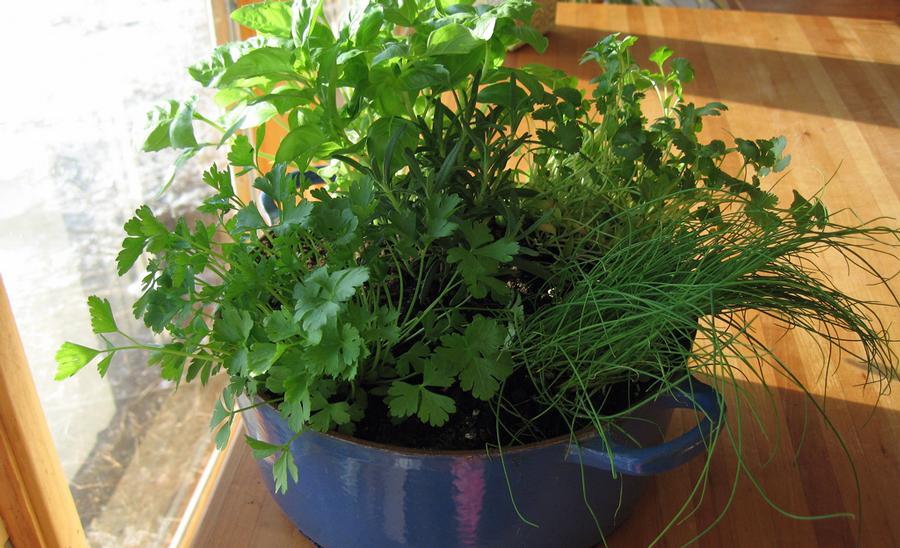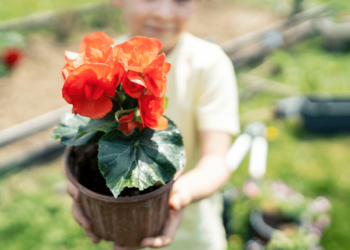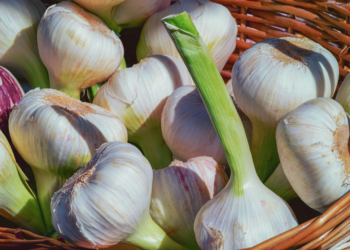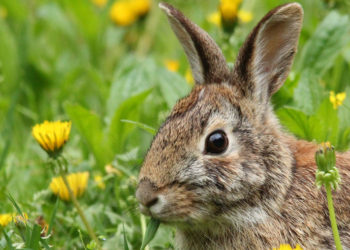Did you know that you don’t have to say goodbye to your beloved herb garden for the winter? Learn how to overwinter herbs, so you can enjoy these recipe enhancing flavor all year long!
How to Overwinter Herbs: Perennial Herbs
Perennial herbs are easy. Your perennial herb garden will come back each spring with very little effort on your part. Hardy perennials like tarragon and lavender die back in winter. Simply prune your perennial herbs down to last year’s growth, and put a 2-3 inch layer of mulch on top. This will protect the roots and to prevent them from heaving out of the soil during freezing and thawing. Onions and garlic (considered herbs by many, even though they’re actually bulbs) also do well with either straw mulch or row covers.
For a supply of fresh mint through the fall months, cut off the top of the plant, put the roots in seed trays (or deeper boxes) and cover with soil. Keep in a greenhouse or cold frame.
Don’t Forget Annual Herbs!
You can extend the growing season of annual herbs by bringing them indoors before the first frost. You can grow herbs like rosemary, chives or parsley inside your home during the winter as long as you have a sunny windowsill. Herbs will also keep in the basement or garage if there is a small window for light.
Before bringing any plants indoors, check for bugs and pull off any dead leaves. Cut back any scraggly growth. Allow plants to sit a week or two in a covered porch or garage before moving them into the house, so they can adapt gradually to changes in light, temperature and moisture
Indoor Herbs: Water and Light Requirements
Herbs do best if they have 5-6 hours of sun a day. Potted herb plants can be placed on tables or on the floor near any sunny window. But don’t put saucers under the pots–they don’t like wet feet! Generally, don’t water more often than once a week in winter. It’s best to water herbs in the morning. Use a spray bottle with warm water and mist lightly to maintain some humidity in the air, especially if your home has forced air heat. You’ll also want to check the soil moisture regularly to prevent herbs from drying out completely.
Fertilizer is generally not needed for herbs over the ‘dormant’ winter months.
Pots Matter: Tips for potting
Use 8 to 12 in. diameter pots to allow roots plenty of growing room. Also, only use pots or containers with good drainage holes. But make sure the holes are partially blocked with cheesecloth or gravel to prevent soil from leaking out when you water. Fill pots about 3/4 full with a mix of compost and quality potting soil. It’s a good idea to group several pots close to each other so there is plenty of moist air from the leaves being crowded together. You can also place potted herb plants in a gravel-lined tray to help prevent root rot.
To enjoy your herbs in recipes or for therapeutic needs, simply snip leaves as needed, and the plants should continue to grow and replenish throughout the chilly months.





4 Comments
Jan C.
September 4, 2014 at 8:59 amI live in Michigan and wondered if I could grow a rosemary plant indoors. If so, which variety would work best? Also same with lavender. Thanks, Jan
Karen
September 4, 2014 at 9:00 amJan,
They could be brought inside and wintered over, but both are pretty tricky to keep. They need to have good light: a sunny southern window or artificial lights work well. Both plants need to have good air circulation, and no drafts. Make sure they are potted in well-drained soil. Temperatures should average in the 60s. Be sure to not overwater them during the winter months, but do provide ample humidity around the plants by either misting them or by placing them on a tray of pebbles with water. A mudroom is a great environment for plants.
For Rosemary, try the varieties ‘Arp’ or ‘Hill Hardy’. For Lavender, look for varieties of Lavandula angustifolia, such as ‘Mundstead’ or some of the crosses with L. dentata such as Goodwin Greek Grey.
Good luck, and happy gardening. Karen
Mary Wilde
October 11, 2021 at 12:41 pmPerennial basil? Tall plant?
GrowJoy
January 5, 2022 at 12:57 pmMary, basil is an annual in all but the warmest places. But you can bring it indoors over the winter and enjoy fresh basil!